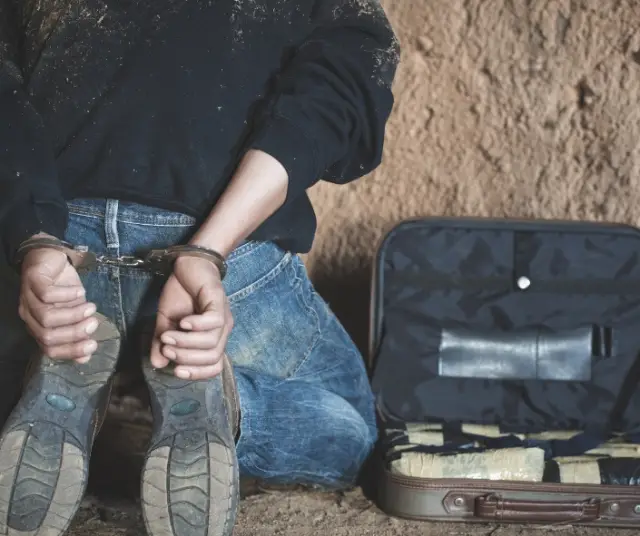Human trafficking is a form of modern slavery that affects millions of people around the world. Often, this heinous crime occurs invisibly, beneath the surface of our communities and societies. To raise awareness and advocate for meaningful change, the international community has designated July 30 as the International Day Against Human Trafficking. This day is not only a reminder of the persistent injustice faced by many individuals, but also an opportunity to reflect on the efforts needed to combat this serious violation of human rights.
Origins and Meaning of the International Day against Trafficking in Human Beings
July 30, designated as the International Day Against Trafficking in Human Beings, is rooted in a compelling need to highlight and address one of the most egregious manifestations of contemporary injustice and violence: human trafficking. This commemorative date arises as an urgent response to growing global concern about the increase in human trafficking and its devastating impacts on individuals and communities around the world.
The proclamation of "World Day Against Trafficking in Persons" by the United Nations General Assembly in 2013 marked a significant milestone in international efforts to combat this transnational crime. The election of July 30 was not random, but represents a symbolic moment in which the international community comes together to reflect on the seriousness of the problem and reaffirm its commitment to eradicating this modern form of slavery.
The origin of this designation is intrinsically linked to the need to make visible and raise awareness about a reality that often remains hidden under the veil of secrecy and invisibility. Human trafficking knows no borders and affects people of all ages, genders, nationalities and socioeconomic backgrounds. From women and girls subjected to sexual exploitation to migrant workers subjected to forced labor conditions, the scope of this crime is vast and merciless.
The International Day Against Trafficking in Human Beings is not only a date to remember the victims and honor their resilience, but also an opportunity to strengthen public awareness and political commitment in the fight against this scourge. By highlighting this day on the international calendar, we seek not only to denounce injustice, but also to promote global solidarity and collective action to prevent human trafficking, protect victims and prosecute those responsible.
The Scope of the Problem: Global Dimensions of Human Trafficking
Human trafficking is a lucrative and ruthless business that affects people of all ages, genders and nationalities. Victims may be subjected to sexual exploitation, forced labor, domestic servitude, forced marriage, organ harvesting, and other forms of abuse. According to the United Nations Global Report on Trafficking in Persons, 71% of victims are women and girls, and 25% are minors.
Human trafficking networks operate everywhere, from the streets of big cities to the most remote rural areas. Traffickers take advantage of the vulnerability of people in situations of poverty, armed conflict, displacement, discrimination, lack of education and other forms of social marginalization. These conditions provide a breeding ground for the recruitment and exploitation of victims, who are often deceived with promises of employment, education or a better life.
Challenges in the Fight against Human Trafficking
Despite efforts to combat human trafficking, it remains a formidable challenge for the international community. One of the main difficulties lies in the clandestine and underground nature of this crime, which makes its detection and prosecution difficult. Furthermore, the lack of coordination between countries and limitations in the resources and capabilities of law enforcement agencies also hinder efforts to effectively combat this modern form of slavery.
Another major challenge is the stigma and discrimination faced by victims of human trafficking. Many times, these people are treated like criminals instead of receiving the support and protection they need. The lack of public awareness on this issue also contributes to the invisibility of victims and the impunity of traffickers.
Strategies to Combat Human Trafficking
Despite the challenges, there are effective strategies to combat human trafficking and protect victims. One of the most important measures is to strengthen international cooperation and the exchange of information between countries to identify and dismantle human trafficking networks. This requires a joint commitment to improve law enforcement training and resources, as well as to harmonize national laws and policies related to human trafficking.
Furthermore, it is crucial to address the underlying causes of human trafficking, such as poverty, inequality, armed conflict and discrimination. This involves implementing economic and social development programs that provide opportunities to vulnerable communities and promote education, women's empowerment and the protection of human rights.
Another important strategy is to improve the identification and protection of victims of human trafficking. This includes training professionals from various sectors, such as social workers, doctors, lawyers and immigration officials, to recognize the signs of human trafficking and provide appropriate assistance to victims, including medical care, psychological support, safe shelter and legal assistance.
The Role of Civil Society and Non-Governmental Organizations
Civil society and non-governmental organizations (NGOs) play a key role in the fight against human trafficking. These organizations provide direct support to victims, including rehabilitation and reintegration into society, as well as defending their rights before authorities. Additionally, they conduct public education and awareness activities to increase awareness of human trafficking and promote solidarity and community action.
By uniting in this fight, we can send a clear message of solidarity and hope to victims of human trafficking and work together to build a world where the dignity and rights of all are respected and protected. Only then can we achieve the vision of a future free of slavery and exploitation, where every person can live in security, freedom and dignity.
